Words
Words – Even though they are small, they are great at making the inside of your head big.
— Oliver Jeffers and Sam Winston, The Dictionary Story
Photo: South Riding, Virginia, January 6, 2025
Words – Even though they are small, they are great at making the inside of your head big.
— Oliver Jeffers and Sam Winston, The Dictionary Story
Photo: South Riding, Virginia, January 6, 2025
Your book’s going to have many flaws — just like you. And me. Good intentions and bad habits, brilliant days and sucky weeks, all swirled together. Isn’t it your flaws that make you interesting and complicated? If you are waiting until everything is perfect to write the perfect book, fine. But at least practice while you wait. Work on a not-perfect book, on a Good Enough book, in the meantime.
— Heather Sellers, Chapter After Chapter, p. 129
Photo: South Riding, Virginia, November 1, 2021
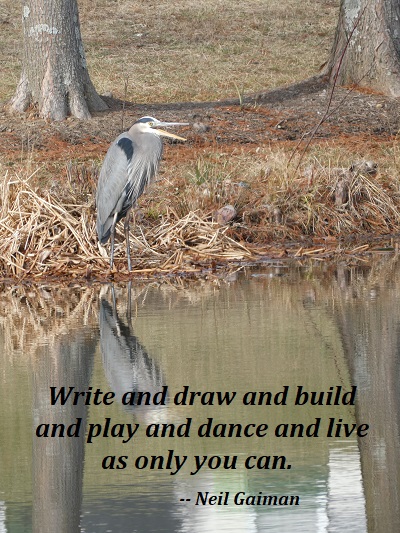
The one thing that you have that nobody else has is you.
Your voice, your mind, your story, your vision. So write and draw and build and play and dance and live as only you can.
The moment that you feel that, just possibly, you’re walking down the street naked, exposing too much of your heart and your mind and what exists on the inside, showing too much of yourself, that’s the moment you may be starting to get it right.
— Neil Gaiman, Art Matters, “Make Good Art”
Photo: South Riding, Virginia, December 25, 2019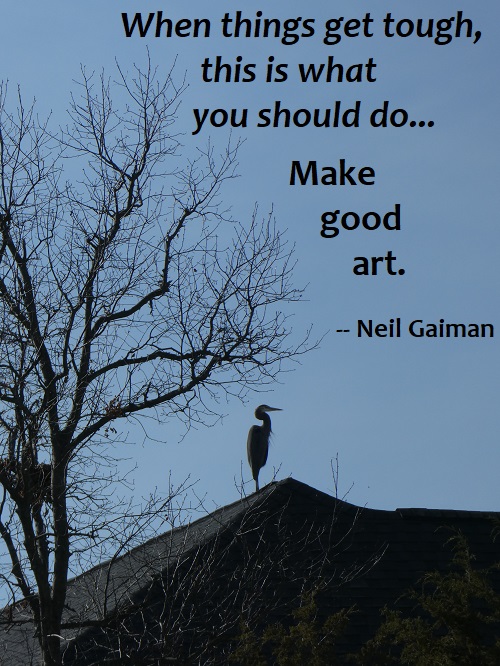
Life is sometimes hard.
Things go wrong, in life and in love and in business and in friendship and in health and in all the other ways that life can go wrong.
And when things get tough, this is what you should do…
Make good art.
— Neil Gaiman, Art Matters, “Make Good Art”
Photo: South Riding, Virginia, November 11, 2019
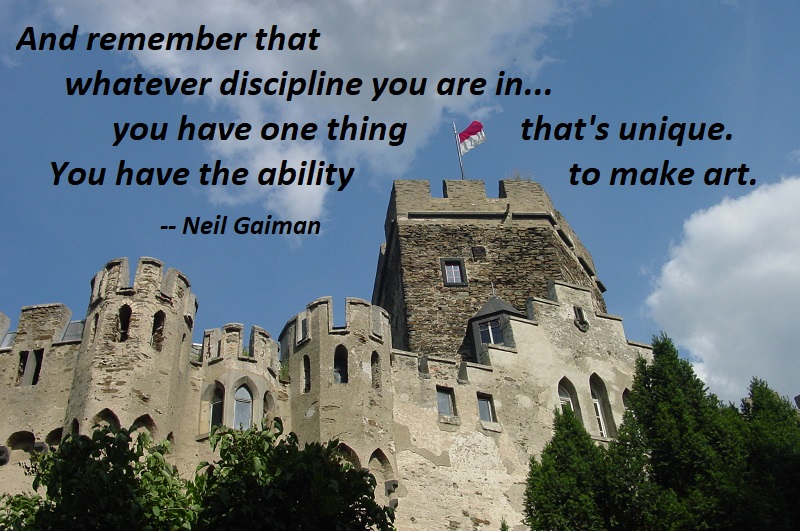
And remember that whatever discipline you are in, whether you are a musician or a photographer, a fine artist or a cartoonist, a writer, a dancer, a designer, whatever you do, you have one thing that’s unique.
You have the ability to make art.
— Neil Gaiman, Art Matters, “Make Good Art”
Photo: Burg Lahneck, Germany, August 22, 2004
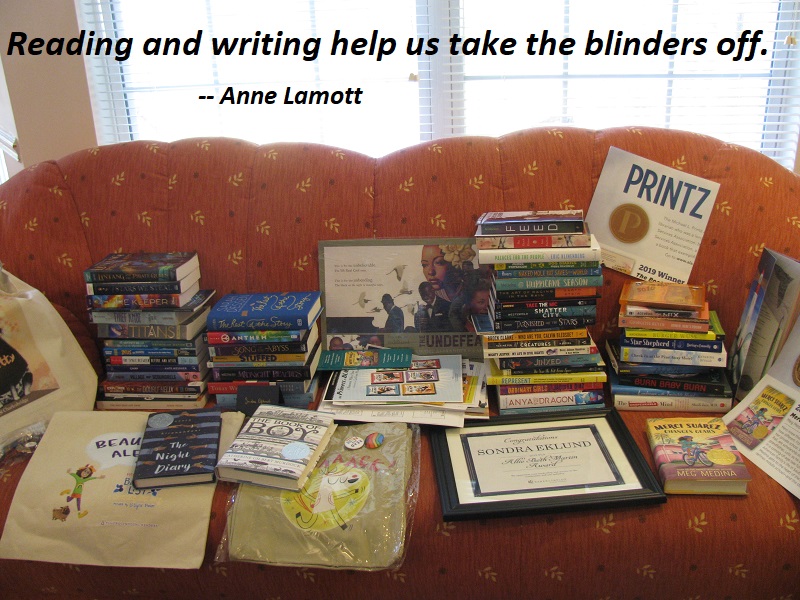
Reading and writing help us take the blinders off so we can look around and say “Wow,” so we can look at life and our lives with care, and curiosity, and attention to detail, which are what will make us happy and less afraid.
— Anne Lamott, Almost Everything, p. 99
Photo: After 2019 ALA Annual Conference
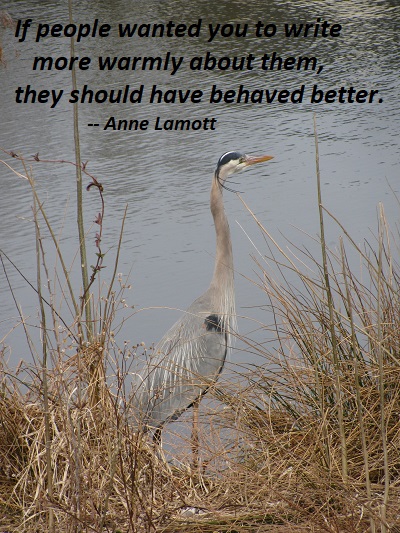
And everything that has happened to you belongs to you. If people wanted you to write more warmly about them, they should have behaved better.
— Anne Lamott, Almost Everything, p. 92
Photo: South Riding, Virginia, March 20, 2019
When you want to give the audience an emotion — whether in acting or in singing or in writing — you have to be on the other side of the emotion. In talking with one of you, I likened it to intercessory prayer. When you are praying for someone, beware. Do not manipulate. Do not try to control. Do not try to order the universe. You simply move through into that person and then offer whoever it is to God. But, again, you go through and out and on other side of emotion. If you are manipulative with your character — one you’re playing, one you’re writing about, or one you’re praying about — then it doesn’t work.
— Madeleine L’Engle, Madeleine L’Engle, Herself, compiled by Carole F. Chase, p. 222
[Photo: Rhein River, Germany, from Burg Rheinstein, July 1997]
Inspiration comes far more often during work as things get rolling than before you sit at the typewriter. This is because the largest part of the job of the artist is to listen. To listen to the work and to go where it tells you to go. And this involves faith. Letting go of your own control and having faith in something you do not control.
To pray is also to listen. To move through my own chattering to God, to get beyond those words to that place where I can be silent and then listen to what God may have to say.
— Madeleine L’Engle, Wheaton College Writing and Literature Conferences, quoted in Madeleine L’Engle, Herself, compiled by Carole F. Chase, p. 132.